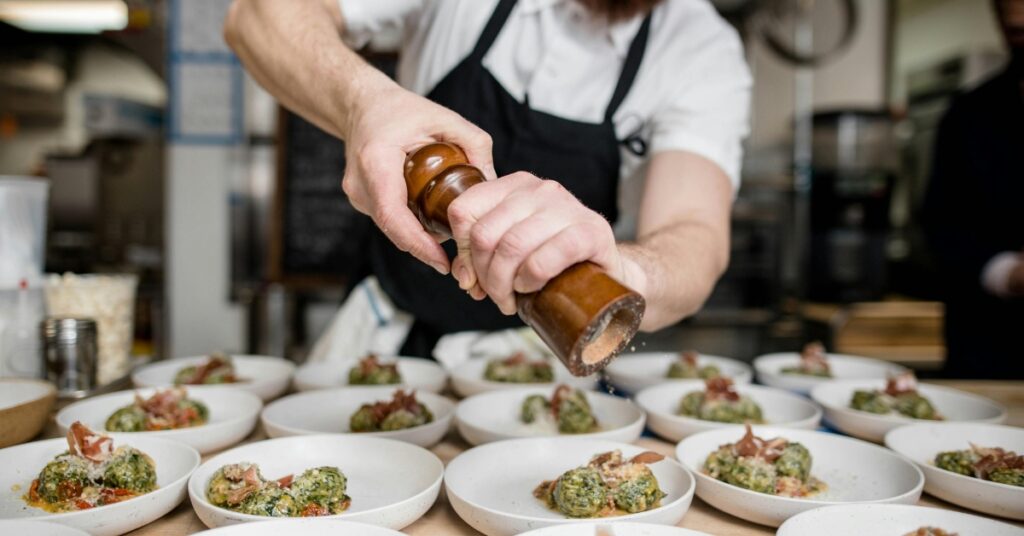By: Brian Harris
It seemed a strange question at the time. “Chef or ingredient. Which are you?” The more I have pondered it, the more I appreciate its relevance. What’s it getting at?
Behind the question is the probe: “Are you essentially a pawn in someone else’s game – there because in some way you add something to it (a tasty additional ingredient) – or are you in control of the game, deciding what goes in, and what is excluded?”
Chef or Ingredient in Context
Most of us would say that it depends on the setting. Sometimes we are more chef than ingredient, other times more ingredient than shaper of the stew. Apply it to your work context and you can probably give a quick answer. Most people are simply one of the ingredients – part of a much larger team, but hopefully adding value and appreciated for what they bring – or not! After all, we’ve all tasted dishes where we pull a sour face and add, “Oh that’s off. Something’s wrong there.” Or been at places where the “blah” verdict has been given, until a few new appointments suddenly transform the environment into something humming with energy.
The Weight of Leadership
But then so does the chef. The same set of ingredients in one person’s hands can become a feast, while another turns out fare that produces heartburn. If you are an ingredient, it matters who the chef is. So let me ask the question again: Do you prefer to be in charge, or to be a valued player on a team? It’s not a trick question. We are wired differently. Some find it hard not to have the final say, others prefer to contribute constructively without carrying the burden of leadership. Leadership, after all, is about weight – the responsibility of the final call, even when it involves announcing change that others may resist.
Questions for the Ingredient or the Chef
Regardless of whether you are more chef or ingredient, there are key questions to consider. If “ingredient”: Are you contributing to a dish worthy of what you bring? If you’re a fine wine, why be wasted in a stew that doesn’t need your richness? Consider whether your setting allows you to flourish, and if not, what options may be open to you. If “chef”: Are your skills up to the “ingredients” in front of you? Are you working to upskill and draw out the best from those entrusted to you? The best chefs make great dishes even from modest ingredients, and they take responsibility rather than blame.
The Higher Perspective
Of course, none of us are entirely “chef” or “ingredient.” Many things are outside our control. This is why the writer of Psalm 20:7 reminds us: “Some trust in chariots and some in horses, but we trust in the name of the Lord our God.”Ultimately, we can rest in the truth that God is in control. Whether called to be chef or ingredient, we can have confidence that good will come in His hands. As Psalm 46:10 advises: “Be still, and know that I am God.”
Article supplied with thanks to Brian Harris.
About the Author: Brian is a speaker, teacher, leader, writer, author and respected theologian who is founding director of the AVENIR Leadership Institute, fostering leaders who will make a positive impact on the world.
Feature image: Canva





